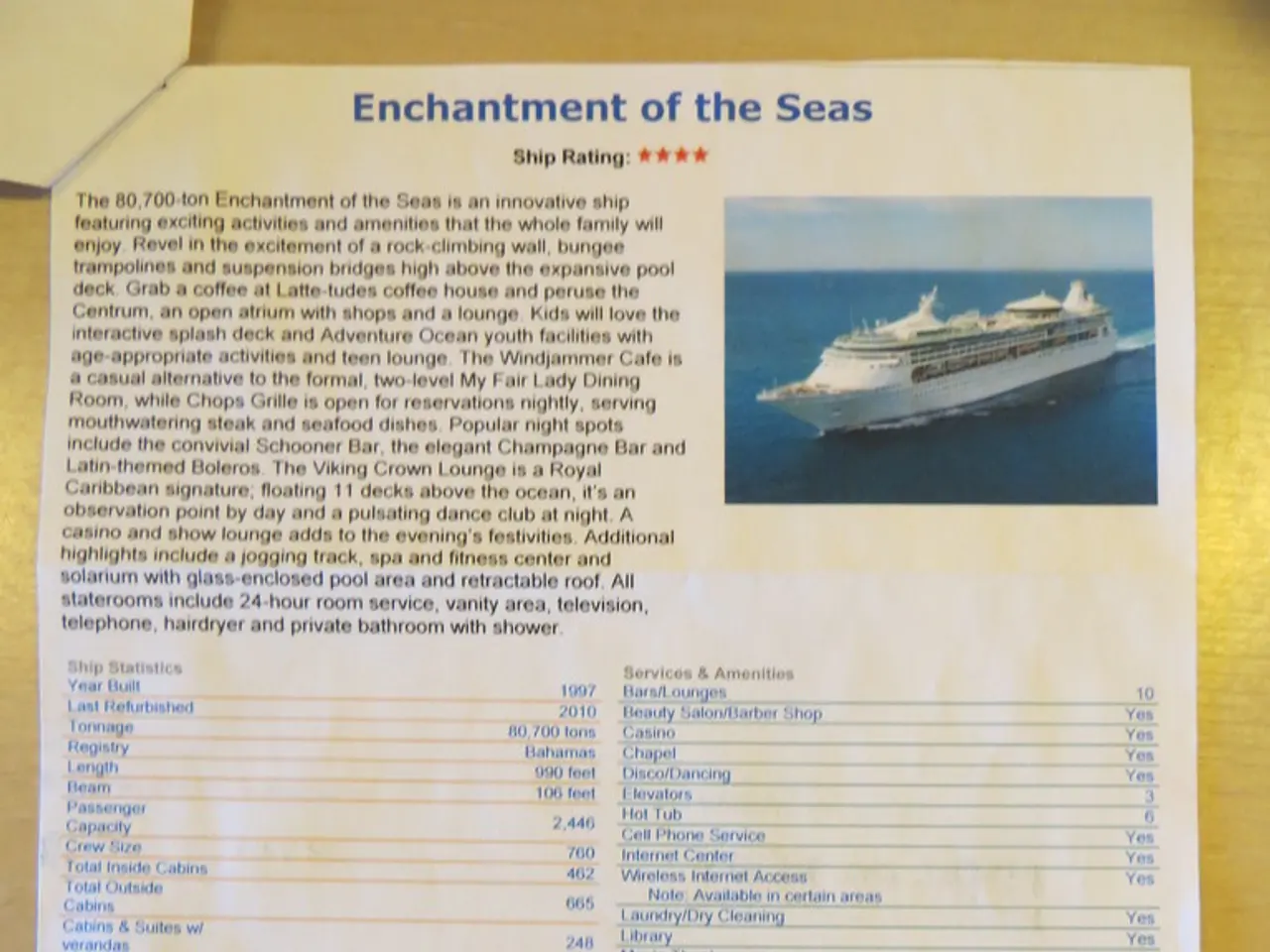Thriving Cruise Industry: TUI Reports Soaring Profits
In a recent announcement, TUI, the global travel giant, highlighted its impressive performance in the second and third quarters of 2025. The company's revenue growth can be attributed to several key factors.
Strong Demand for Hotels and Cruises
TUI reported a record performance in its Hotels & Resorts and Cruises divisions during the first nine months of the year. This strong demand significantly boosted TUI's revenue and earnings, contributing to its overall growth.
Resilient Summer Travel
Despite initial concerns about travel demand, summer 2025 proved to be more resilient than anticipated. This resilience, particularly in European markets, helped maintain revenue levels and reinforced TUI's top-line performance.
Late Bookings Trend
TUI noted a continued later booking trend, which, while challenging for long-term planning, can also contribute to revenue stability by ensuring bookings closer to travel dates are secured. This trend is reflecting a shift in consumer behavior where travelers are booking holidays closer to departure.
External Influences
The competitive market environment, especially in the Airlines segment, presented challenges. However, TUI's diversified offerings and strategic investments helped mitigate these impacts. External factors like differentiated travel seasons and consumer preferences for off-peak travel also influenced the company's overall strategy.
Strategic Investments
TUI has been focusing on expanding its global platforms and improving operational efficiency. The company successfully placed a €250 million promissory note loan to address aircraft leasing agreements ahead of schedule, enhancing its financial health and operational ease.
In the third quarter, TUI had 5.9 million guests, slightly fewer than in the same period in 2019 before the COVID-19 pandemic. However, around 86% of the package holidays offered for the summer had been sold by early August, indicating a robust demand. TUI's adjusted operating profit (adjusted EBIT) increased by 38% to 321 million euros in Q3.
The cruise segment, including TUI Cruises, Hapag-Lloyd Cruises, and Marella Cruises, achieved a record result in Q3, supported by two new ships, a 33% increase in capacity, and a fully utilized fleet. The TUI Tours platform, which allows customers to put together multi-day trips individually, is a new offering.
In the "Holiday Experiences" segment, including the hotel brands Riu, TUI Blue, and Robinson Clubs, record levels were reached in Q3. However, in the tour operator segment, TUI recorded around a 2% decrease in guests compared to last year, with a 5% decrease in Germany.
TUI's earnings per share were 183 million euros in Q3, compared to 52 million euros in the same period last year. The company did not want to take on "the last customer" at a loss in the tour operator segment. TUI reported a 7% revenue increase in Q3, reaching 6.2 billion euros. Sales via the TUI app increased by 42 percent.
Looking ahead, TUI plans to focus more on long-haul trips in the winter. The start of the 2025/26 winter season was "very positive" for TUI. Prices in the tour operator segment were on average 3% higher. TUI has slightly increased its flight and hotel capacities for the winter season.
In conclusion, TUI's performance in Q2 and Q3 2025 was positively influenced by strong hotel and cruise sectors, resilient summer demand, and strategic financial and operational maneuvers. The company faced challenges in its Airlines segment due to competitive market conditions, but its diversified offerings and strategic investments helped mitigate these impacts.
Read also:
- Prostate Cancer Progression: Prognosis, Therapies, and Resources of Care (Stage 2)
- Impacted vision post-cataract surgery: Reasons and remedies
- Guide on Achieving Harmony between Sustainability, Fairness, and Consumer Rights for All, as Discussed by Pradeep S. Mehta
- Cost Analysis of the Everest Base Camp Trek Journey







